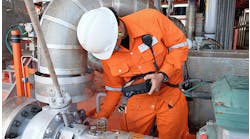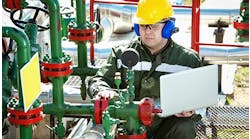In a recent discussion on www.OurISA.org, Dave Harrold, a 40+ year ISA member and a past contributing editor to Control, noted, "I would argue that a key to returning ISA to a viable organization is to embrace its original mission; that is to establish an organization that helps instrument technicians become ever better at their jobs."
I don't know if anything can return ISA to viability, but Dave has a real point. Lost in the wonderment of being an automation professional is the very real issue that the blocking and tackling skills of instrument selection, applications knowledge and single-loop control are the underpinnings of everything else we do in automation. And those skills are apparently disappearing from plants at a rapid rate.
How important are they? I was listening to Greg McMillan, our "Control Talk" columnist and member of the Process Automation Hall of Fame talking a few years ago, and he said something like, "No amount of advanced process control or fuzzy logic is going to compensate for 30 minutes of physical loop lag time."
Indeed, it is sometimes easier to get classes on advanced process control than on the basics of general instrumentation and control.
I guess people are supposed to absorb how to select a flowmeter for a particular application from the air around them. Maybe how to select and use a level instrument is supposed to be intuitively obvious. At least that is the feeling I get from talking to people who are new employees in automation careers.
And, of course, that's nuts. Selecting a flowmeter is not rocket science, but it is not easy either, and there are few third-party selection devices available. Level measurement may well be the oldest form of instrumentation, dating back to ancient Egypt, but it's no slam-dunk for the novice.
We're back to what I've called the "Ginger Rogers effect." That is, we're supposed to do everything needed to make a plant work, and do it backward and in high heels—while making it look effortlessly easy.
Balderdash.
Somebody has to know the basic skills, be taught the basic skills, and be refreshed on the basic skills from time to time before they can build on those basic skills to do things like loop tuning, advanced control, unit and plant optimization, and moving data from the loop to the enterprise. Otherwise, we have exactly the problem that is going on in cybersecurity right now: People are making decisions and doing things to the plant floor who have no earthly idea how the plant floor control systems operate—and they're causing cyber incidents by doing so.
So, how do you get your basic training, and your refreshers? Do you go to ISA section meetings? Do you read books? Does your employer offer training courses? Do you wander around the InterWebs looking for necessary information? YouTube and Google it? Or do you just wing it and learn what you need to know as you need to do it, and hope your ignorance doesn't cause too much damage meanwhile?
How DO you want to get refreshers and even learn the basics of the instrumentation and controls that are the underpinning of the automation profession? Do you want to go to school? Do you want classes at your work? Do you want Internet-enabled courses? Do you want mentoring and tutoring provided by your employer? Do you just want to be left alone?
We want to know the real answers to these questions. So, for the next 30 days, we're leaving open a short survey about how you want to learn the basic skill sets required to be an automation professional. Click on www.controlglobal.com/basicskillsurvey.html and tell us what you think.




